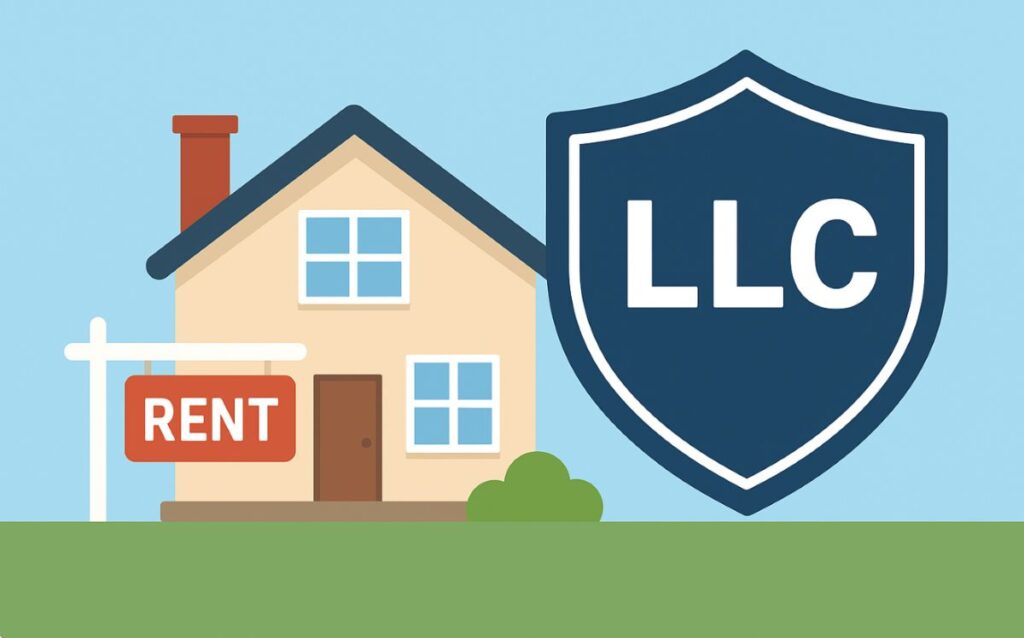Owning rental property can be a profitable investment, but it also comes with risks. Many landlords choose to form a Limited Liability Company (LLC) to protect themselves and enjoy certain tax advantages. Understanding the advantages of an LLC for rental property can help you decide if this structure is right for you.

What Is an LLC for Rental Property?
A Limited Liability Company (LLC) is a legal business structure that separates your personal assets from your rental property business. Many landlords use LLCs to protect their personal finances, reduce liability, and gain tax benefits.
Key Advantages of an LLC for Rental Property
Liability Protection
One of the main advantages of an LLC for rental property is personal liability protection. If a tenant is injured on your property or if a lawsuit is filed, your personal assets—like your home, car, or savings—are generally shielded. Only the assets owned by the LLC are at risk. The U.S. Small Business Administration highlights this protection as a primary reason investors choose LLCs.
Tax Benefits for Landlords
LLCs offer flexible tax treatment. Profits pass directly to owners and are reported on their personal tax returns, avoiding “double taxation.” Rental property owners can also deduct mortgage interest, property taxes, repairs, and other expenses. The IRS provides guidance on deductions and the option to elect S corporation status if it reduces taxes.
Professionalism and Credibility
Operating under an LLC name can make your rental property business appear more professional. This helps when opening business bank accounts, signing leases, and dealing with tenants or lenders. It also adds credibility for future expansion.
Flexibility in Ownership and Estate Planning
An LLC allows multiple owners (members), making it easier to share ownership among family or partners. For estate planning, you can transfer ownership shares rather than individual deeds, providing flexibility and avoiding complex legal procedures.
Separation of Business and Personal Finances
Keeping rental income and expenses separate through an LLC simplifies accounting and tax filing. It also demonstrates to courts and the IRS that your rental business is legitimate, maintaining your liability protection.
Potential Drawbacks of an LLC for Rental Property
Costs and Annual Fees
While there are many advantages of using an LLC for rental property, costs and responsibilities exist. States may charge high formation fees or annual fees. Research your state’s official business filing office for accurate details.
Mortgage and Financing Issues
Transferring a property to an LLC can trigger “due-on-sale” clauses, requiring refinancing. Some banks may have specific requirements for properties owned by LLCs.
How to Form an LLC for Your Rental Property
Step 1: Choose a State
Some states are more LLC-friendly for real estate investors. Consider fees, taxes, and privacy laws when deciding.
Step 2: File the Articles of Organization
Submit the formation documents to your state’s business office. Check the state business filing office for instructions.
Step 3: Get an EIN from the IRS
An Employer Identification Number (EIN) is necessary for tax filing and opening bank accounts. Apply online at the IRS EIN Application.
Step 4: Open a Business Bank Account
Separate accounts for income and expenses strengthen your liability protection and simplify bookkeeping.
Conclusion: Is an LLC Right for Your Rental Property?
The advantages of an LLC for rental property include liability protection, tax benefits, professionalism, and ownership flexibility. However, costs and state-specific regulations must be considered. For most landlords, forming an LLC is a smart step to protect personal assets and grow a rental business.